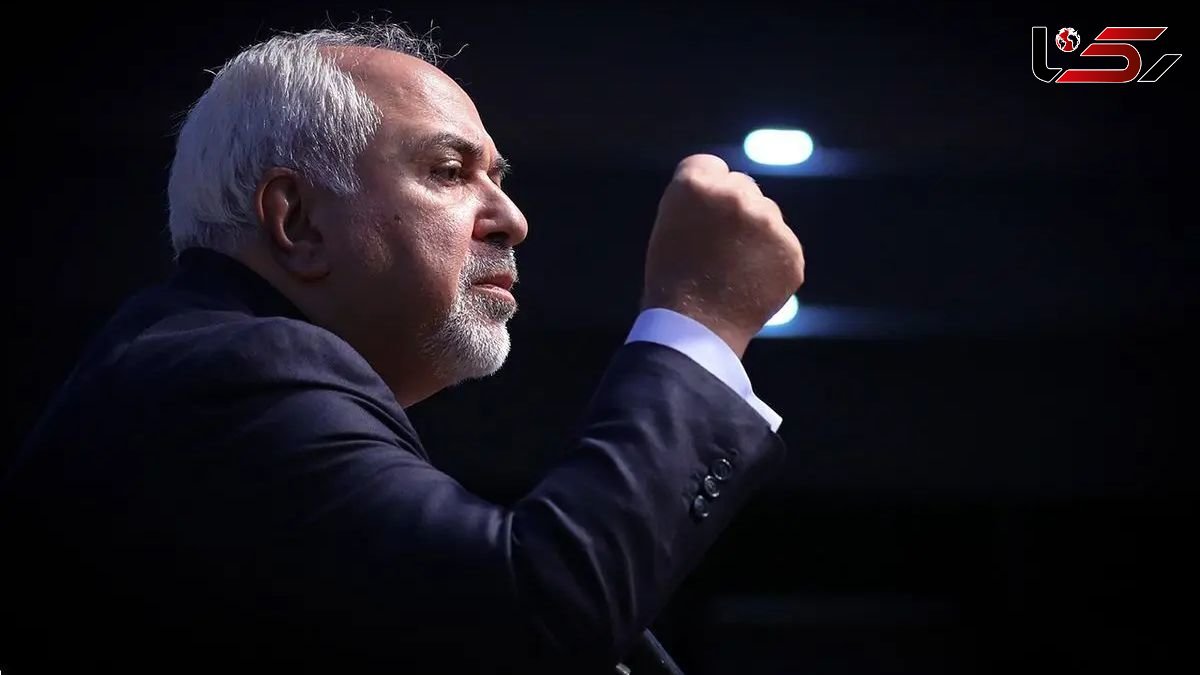Zarif: Iran’s Window of Opportunity Is Limited; Direct Talks with U.S. Key to Resolving Disputes
Rokna Political Desk: Former Iranian Foreign Minister Mohammad Javad Zarif has emphasized the need for “direct and multi-dimensional negotiations” with the United States from a position of strength, warning that the passage of time could work against Iran and that current opportunities for diplomacy may be more favorable than those in the future.

Former Iranian Foreign Minister Mohammad Javad Zarif says direct and multi-dimensional negotiations with the United States, conducted from a position of strength, can best serve Iran’s national interests.
According to Rokna, Mohammad Javad Zarif, in an exclusive interview with a Lebanese media outlet, emphasized the necessity of pursuing direct and multi-dimensional negotiations with the United States from a position of strength.
Criticizing certain domestic and foreign viewpoints that equate negotiation with surrender, Zarif said Iran can defend its rights at the negotiating table by relying on its national capabilities and the will of its people.
He warned that the passage of time does not necessarily work in Iran’s favor, adding that current opportunities for negotiation may be lost in the coming months.
Negotiations Are Not Futile
Responding to critics who see talks with the West and the United States as ineffective—particularly amid recent Israeli aggression—Zarif said, “These negotiations, despite my criticism of their methods and process, enabled the Iranian people to remain united against the Zionist enemy and to foil its plans to destabilize the system.”
He added that had Iran abandoned the negotiation table, the public might have questioned whether such a move had given adversaries an opening for aggression.
On speculation about a possible new Israeli attack against Iran, Zarif described such predictions as uncertain, citing remarks by Russian President Vladimir Putin that no such action was expected in the next six months. “These are all assumptions,” Zarif said. “We cannot predict the future with certainty. What we must do is strengthen our defense capabilities, preserve internal unity, and pursue proactive diplomacy from a position of power.”
He described “real negotiation” as the ability to “step beyond the confines of the past and use all elements of national strength.” Referring to the 12-day conflict with Israel, Zarif asserted that Iran remains the only country capable of striking Israel directly, noting that the United States’ evacuation of military bases ahead of possible Iranian retaliation demonstrated Washington’s recognition of Tehran’s deterrence power.
Direct Negotiations as the Only Solution
Zarif described direct talks with the United States as “the only path to resolving disputes,” adding, “Contrary to what some in Iran and the U.S. believe, negotiation does not mean surrender. During the JCPOA talks, Iran did not yield to the other side’s demands and managed to secure many of its own objectives.”
He continued, “In any future negotiations, give-and-take is natural. Those who seek only to gain without offering anything in return simply do not understand the fundamentals of diplomacy.”
Rejecting comparisons to the end of the Iran-Iraq War, Zarif said, “Unlike those who claim the system is now forced to drink the poison chalice as in 1988, I believe this is neither possible, nor necessary, nor wise. Today we can negotiate confidently, relying on the will and capability of our people, and defend our rights at the table.”
Defending the Logic of Negotiation
Asked about the Supreme Leader’s views on talks with the U.S., Zarif said, “The Leader has repeatedly told me that experts can and should freely express their views.” He emphasized that well-intentioned experts must not be silenced, even though final decisions are made through the legal decision-making process.
No Proxy Forces in the Region
In response to a question about the alleged weakening of Iran’s regional proxies, Zarif stated, “Iran has never had proxy forces. Our relationship with the resistance movements has been one of support, not control.” He added that even if some resistance movements have lost strength, it does not diminish Iran’s capabilities.
Zarif distinguished between the goals of different regional players: “Israel seeks Iran’s collapse, the U.S. aims to weaken it through pressure, and Arab countries prefer improved relations with a strong Iran to balance Israel.”
He also described the current developments in Gaza as an important opportunity to strengthen Islamic solidarity.
JCPOA, Snapback Mechanism, and the West’s Missteps
Zarif said many attacks against him and the nuclear deal (JCPOA) were “organized and deliberate.” He revealed that the U.S. initially pursued the JCPOA to shift its strategic focus toward Asia and China and to reduce its presence in the Middle East and the Persian Gulf. However, “foreign opposition and domestic miscalculations diverted this course, leading to assassinations and heightened regional tensions.”
He accused European states of “hypocrisy” for exploiting political mechanisms after failing to honor their commitments, predicting that such behavior would erode Europe’s global influence.
Proposals for Iran’s Future Strategy
Zarif proposed that Iran’s first priority should be reinforcing social cohesion, followed by rebuilding defense capabilities and expanding regional relations. He said the next step should be multi-dimensional negotiations with the United States to manage disputes effectively.
On economic recovery, Zarif urged the government to mobilize domestic and expatriate Iranian capital, warning that “no investor will risk their assets in an environment plagued by corruption and rent-seeking. The state must guarantee investment security if it wants sustainable economic growth.”
Send Comments